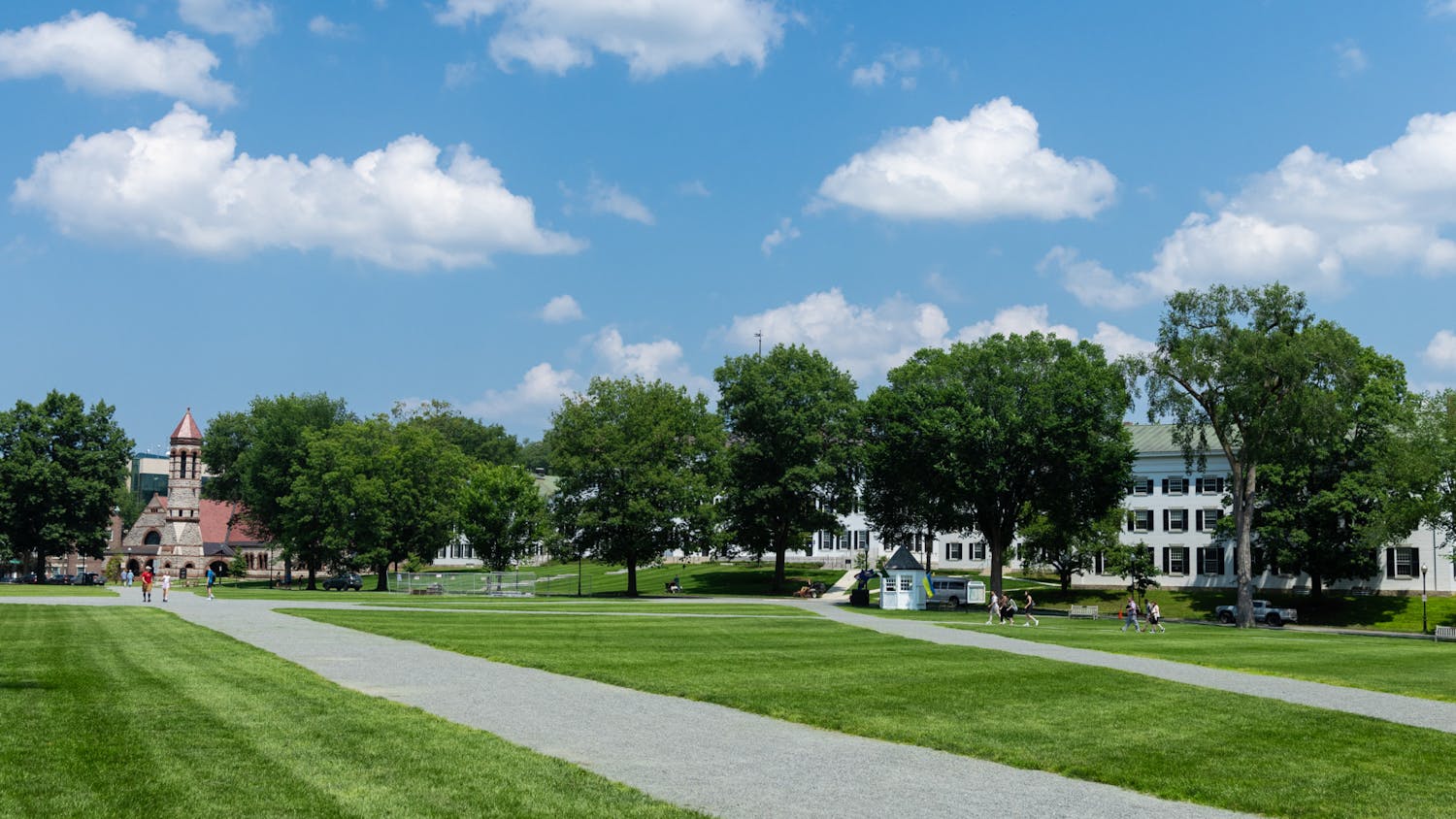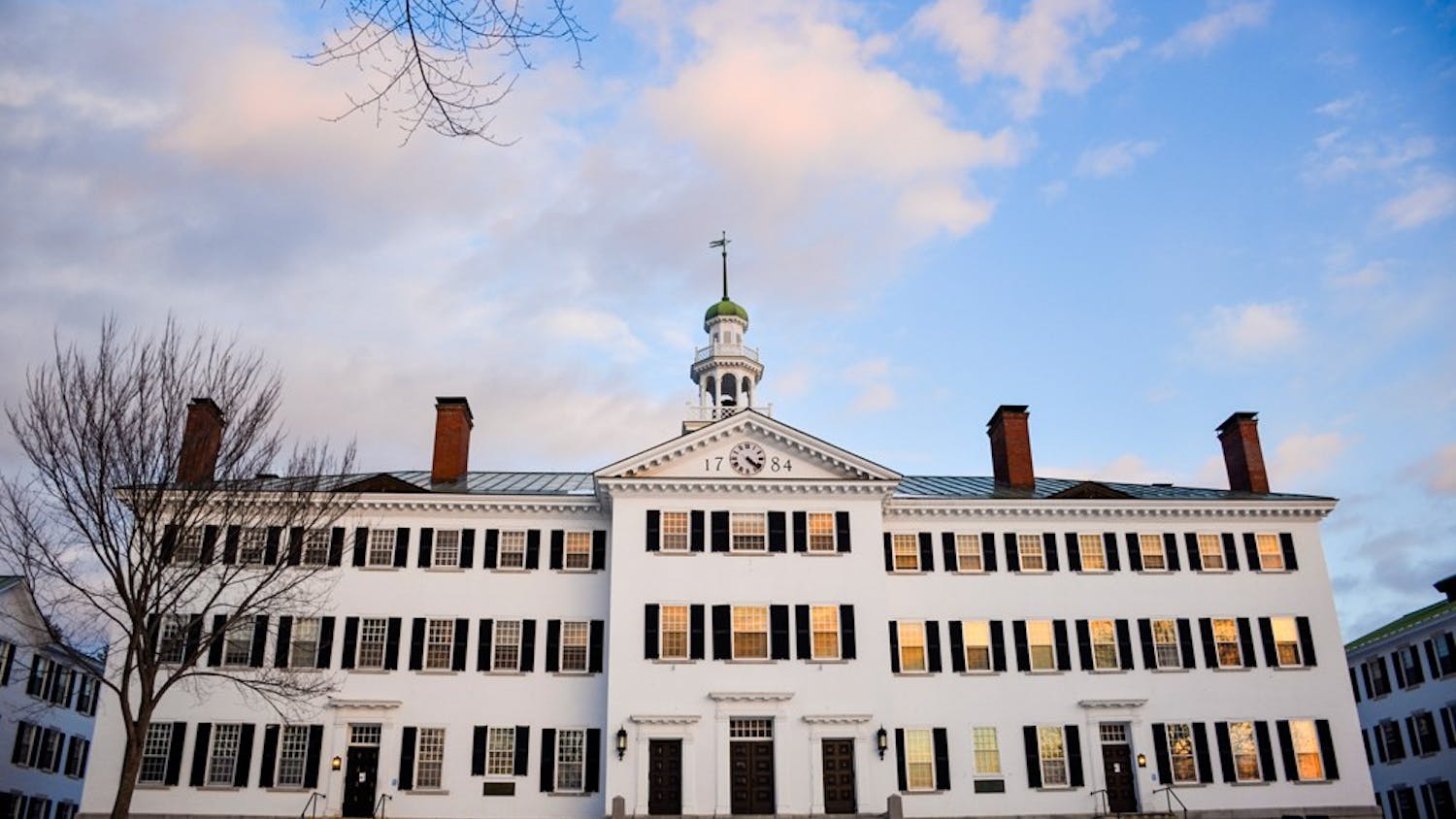On the morning of March 11, 2012, Andrea Pino awoke with a pounding headache. She was disoriented and covered in blood.
The night before, the junior at the University of North Carolina at Chapel Hill was at an off-campus party with a friend when she was assaulted and raped. The Huffington Post reported that Pino suffered a concussion during the attack, making it difficult for her to remember many of the specifics, including her attacker's identity.
Pino tried to continue with her daily routine: attending classes, meeting with friends and carrying out residential advisor duties. She suffered from post-traumatic stress disorder, however, and eventually applied for medical withdrawal from her classes.
"I am a rape survivor, but when I tried to seek support, I was told that I was being lazy," Pino said in an interview. "I filed an anonymous complaint, but there was nothing else I could do. I didn't know my assailant."
Pino began to reach out to other classmates and quickly realized she was not alone in her frustration with how the UNC administration responded to sexual assault claims. When Interim President Carol Folt assumes the chancellorship in June, she will face UNC's ongoing federal investigation regarding its handling of sexual assault cases.
In January, Pino joined sophomore Landen Gambill and UNC alumna Annie Clark to file a formal complaint with the Department of Education's Office of Civil Rights on behalf of themselves and 64 other sexual assault victims at the university whose names are being kept confidential.
The complaint alleges that UNC violated sexual assault survivors' rights under the Campus Sexual Assault Victims' Bill of Rights, failed to comply with the Clery Act and Family Education Rights and Privacy Act and violated equal opportunity mandates of Title IX, the Civil Rights Act and the Americans with Disabilities Act.
The complaint includes stories that date back to 2001, when UNC administrators allegedly ignored reports of sexual assault, mismanaged students' personal information or otherwise protected alleged rapists.
UNC currently faces three federal complaints by the group and two related investigations by the Department of Education.
Gambill told The Huffington Post that she went to the Dean of Students office to report a complaint against an abusive boyfriend last March. She said she hoped that seeking justice through the university's system would be faster and less complicated than through the legal system.
During her trial, however, Gambill told The Huffington Post that members of the Honor Court questioned why she had not done more to stop the alleged abuse, with one member asking why she had not broken up with her boyfriend after the first incidence. She said that a member of the Honor Court informed her parents about the details of her case, which she had not permitted the court to do.
When Clark tried to receive help from a counselor on campus after experiencing sexual assault, the counselor told her that "rape is like football," calling Clark the "quarterback" in the situation and asking her to look back on the incident to see how she could have acted differently to prevent the assault, The Huffington Post reported.
Former UNC associate dean of students Melinda Manning came forward to say that she had been pressured by her supervisor to underreport sexual assault claims that she received last December, calling the stories of student survivors being mistreated by the administration "absolutely heartbreaking," The Huffington Post reported.
Today, Pino said she knows of about 100 other rape survivors on campus and that the sexual assault incidence is much higher than the reported number of forcible sex offenses that are made public as provision of the Clery Act.
UNC reported six offenses for 2009, 19 for 2010 and 12 for 2011.
The university began efforts to review its policies and procedures for responding to sexual assault allegations after receiving an April 2011 letter from the Department of Education's Office for Civil Rights. The letter, referred to as the "Dear Colleague" letter, was sent to all public universities, reminding them of 70 specific requirements related to Title IX compliance for sexual harassment prevention. Compliance is required for all universities receiving federal funding.
The review prompted UNC to remove jurisdiction for sexual assault cases from the student-led Honor System and Honor Court and revise its harassment, sexual misconduct and discrimination guidelines.
The revisions included changing the burden of proof from "beyond a reasonable doubt" to a "preponderance of the evidence" for such cases, providing a formal and informal method of filing claims, compiling a central inventory of campus resources into a single website and expanding staff positions to help students seek resources and oversee the university's compliance with federal regulations.
Sexual assault cases are now heard by a student grievance committee that includes students, faculty and administrators devoted to hearing only complaints of this type. The policy changed officially last August, following a trial period last spring.
UNC junior and student attorney general Anna Sturkey said the policy change is positive, as former Honor System members felt uncomfortable and untrained when adjudicating sexual assault cases. The student attorney general's office is in charge of processing cases received by the Honor System and presenting these cases to the student Honor Court.
In February, UNC hired Gina Smith, a former prosecutor and expert on issues related to sexual assault, to help revise its policies and implement the changes outlined in the "Dear Colleague" letter. The university also hired Ew Quimbaya-Winship as a student complaint coordinator and Deputy Title IX officer to help the university with compliance issues.
UNC is not alone in facing difficulty with combating sexual assault on its campus, Smith said. She said that challenges are borne out of a university's dual obligation to support student survivors as well as conduct a fair trial for both the victim and accused.
Smith has led a number of town hall-style meetings on campus as well as smaller one-on-one meetings with students since she was hired. She said that the broad student engagement on the issue has been "a very positive" development during UNC policy review process.
"A lot of recommendations have been borne out of the collaboration between the administration and campus community," Smith said. "It's a large state university, but I've seen a tremendous, active engagement from all corners of the university."
Much of the feedback Smith received from students at these events overlapped with suggestions she heard from university administrators, such as creating more transparency in the adjudication process, clarifying the language of existing policies and making resources more streamlined and easier to access.
Senior and former student body president Will Leimenstoll said that students still complain of a lack of trust in the administration, which he attributes to the administration's dual goal to support survivors and fairly adjudicate cases. He called the balance "a complicated and tricky situation," which the student government has tried to show students.
"A new leader coming in is an opportunity to rebuild that student trust," Leimenstoll said. "Hopefully she'll be able to make this a major issue at the beginning of her tenure and engage campus in constructive dialogue not tainted by other administrators' past experience on campus."
The UNC student government has tried to increase student awareness about student support groups on campus as well facilitate discussions with administrators and Smith on the topic, Leimenstoll said.
Pino said that despite the recent actions by the administration and student groups, underlying problems remain. She said that victims that come forward to report their cases face "public shame" and very little chance that their alleged attacker will be found guilty.
She said she hopes the complaint will help to drive action among UNC administrators, including incoming chancellor Carol Folt. Pino expressed concern, however, that Folt will not be prepared to deal with the breadth of the issues at UNC, ranging from athletic and academic scandals to managing one of the nation's largest research universities.
"I'm concerned about how she's going to be able to lead a large public university burdened by three federal investigations as well as an athletic scandal and just the general institutional sexism and rape culture," Pino said. "We need a tenacious leader it's not an easy school to lead."



